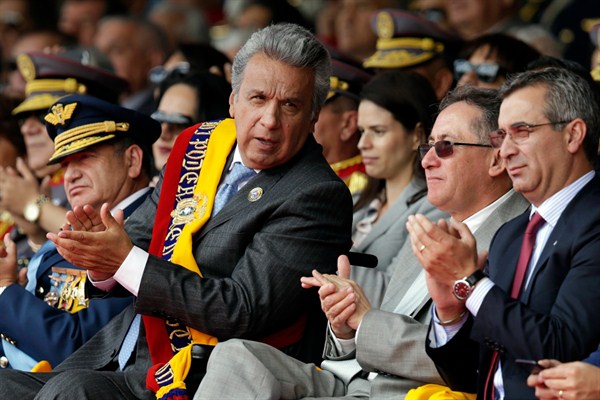South America’s biggest political surprise recently has come from one of its smallest countries, Ecuador, where President Lenin Moreno has maneuvered to break with his predecessor and a legacy tinged with authoritarianism and corruption.
Narrowly elected in April, Moreno had been vice president and the anointed successor of Rafael Correa, the populist, left-leaning, U.S.-trained economist who governed for a decade and centralized control over government, the economy and the media. Analysts speculated Moreno could be a timid caretaker put in place to allow Correa to skirt term limits and then sweep back into office in 2021—in the mold of Dmitry Medvedev, who served as Russia’s president for a four-year period that was only a nominal pause in Vladimir Putin’s continued hold on power. Some even intimated that he was potentially a fall guy, propped up to either lose a difficult election or to govern through a period of economic downturn while Correa left the spotlight and went to live in Belgium.
Instead, Moreno departed from the script. A quieter, more conciliatory figure than Correa—Moreno is the world’s only head of state in a wheelchair, having been paralyzed in a 1998 robbery attempt—his political maneuvering has been swift and decisive. He quickly turned on Correa, seeking to distance himself from perceived rampant corruption and an economic crisis. With a gentle tone, he has built new bridges with the opposition, the private sector and the press—all without alienating his base of working-class voters who benefited from Correa’s self-proclaimed “Citizens’ Revolution.” And with a high stakes referendum over term limits set for Feb. 4, Moreno has boldly moved to consolidate his gains and lock Correa out of office forever.

